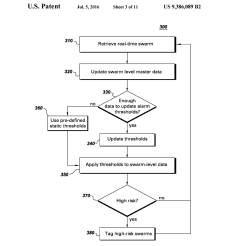 The music industry has been complaining that YouTube doesn’t do enough to combat piracy. But Google says record labels are making millions from YouTube’s Content ID copyright-flagging system, and that the process is used 50 times more frequently than DMCA takedown notices.
The music industry has been complaining that YouTube doesn’t do enough to combat piracy. But Google says record labels are making millions from YouTube’s Content ID copyright-flagging system, and that the process is used 50 times more frequently than DMCA takedown notices.
In a report released Wednesday, “How Google Fights Piracy,” the Internet giant says that when music companies find copyrighted material they own on YouTube with Content ID, they choose to monetize more than 95% of those claims by opting to leave the content up on the platform to generate advertising (rather than blocking it). Indeed, 50% of the music industry’s YouTube revenue comes from fan content claimed via Content ID, according to Google.
Source: YouTube: 50% of Music Biz’s Revenue on Site Comes From Content ID | Variety








